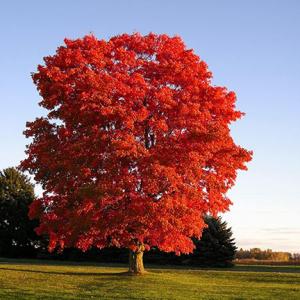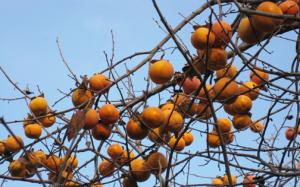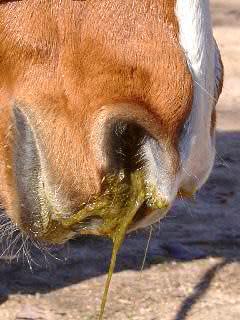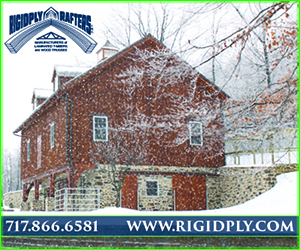By Dr. Christine Cocquyt, Tennessee equine Hospital
After months of stifling hot and humid weather, horses and humans alike are ready for the cooler days of Fall. With this nicer weather, come some season-specific health hazards for your horse. Many of these are preventable with some simple management changes.
Laminitis: The grass may look like it’s dying out, but the warm days and cool nights of early fall result in stressed sugar-rich grass in your fields. Ingestion of these grasses can lead to an episode of laminitis. Horses with Equine Metabolic Syndrome or Equine Cushing’s Syndrome are especially susceptible to this. Additionally, horses with Cushing’s have a natural rise in hormones in the fall that may increase their risk of laminitis. Signs of laminitis are walking gingerly, shifting weight, camping out in front, and heat in the feet with lameness. Horses with any of these signs should be removed from grass and grain, and examined by a veterinarian. The best prevention is to keep high-risk horses on a dry lot or use a grazing muzzle. Testing for endocrine disorders helps identify horses at higher risk.
Red Maple Toxicity: Red maple trees provide a brilliant splash of color in the fall, but the leaves can spell trouble for your horse. The toxin is typically only a problem with dead or wilted leaves such as a broken branch or natural leaf fall. When horses ingest these leaves, the toxin affects red blood cells, leading to severe, life-threatening anemia and decreased oxygen delivery to tissues. Classic signs of red maple toxicity include weakness, very pale or brown mucous membranes, red or brown-colored urine, and sometimes, colic. A horse exhibiting these signs needs to be immediately evaluated by a veterinarian. Avoid having red maple trees in or near the pasture. If that is not possible, monitor for broken branches and fallen leaves especially after big storms.
Persimmon Impaction: Persimmon trees are common throughout the Southeast. Horses will readily consume the rotting fallen fruit if they have access to them. These fruit can stick together forming a large obstructive mass in the stomach. This mass causes colic signs, prolonged anorexia, weight loss, and even rupture of the stomach if untreated. A stomach impaction is often suspected by ruling out more common causes of colic and confirmed by gastroscopy. These impactions usually require repeated veterinary treatment. Restricting access to persimmon trees is an easy way to prevent this malady!
Colic: While colic is obviously not a season-specific problem in the horse, weather and management changes in the fall may contribute to some types of colic. Colic is a sweeping term indicating abdominal discomfort. The types and causes of colic are numerous. Weather and pressure changes are thought to lead to relatively mild gas or spasmodic colic that may resolve with minimal treatment. More severe or prolonged colic signs may reflect a more serious medical or surgical problem requiring veterinary intervention. Always make feed changes over 1-2 weeks to avoid abrupt changes in the gut bacteria and function. Also, provide free access to fresh water at all times and monitor your horse’s water intake to minimize the chance of impaction formation. Bermuda grass hay has been associated with certain types of impaction; incorporation of this hay gradually into the diet and mixing with other types of hay may reduce the risk of these impactions.
Choke: Choke is obstruction of the esophagus with a foreign body. Pelleted feeds are the most common culprit. Increased concentrate feeding as the grass dies out may increase the risk of choke. Have your horse’s teeth checked and floated by your veterinarian, if necessary, so your horse can chew his feed well. Pelleted feeds should be soaked thoroughly for horses with poor dentition. Horses that bolt their feed may not chew thoroughly and be more prone to choking. Add a large rock, salt block, or even muffin tin to the feed bin to slow ingestion of feed in these horses. Small hedge apples can cause serious esophageal obstruction, so keep horses away from these if possible.
The old saying, “you could put a horse in a padded room and he’d find a way to hurt himself” always applies to horses. You can reduce your horse’s risk of the issues discussed here though by taking a few minutes to evaluate your pastures and feeding practices. A little prevention will help keep you riding worry-free all Fall!
After months of stifling hot and humid weather, horses and humans alike are ready for the cooler days of Fall. With this nicer weather, come some season-specific health hazards for your horse. Many of these are preventable with some simple management changes.
Laminitis: The grass may look like it’s dying out, but the warm days and cool nights of early fall result in stressed sugar-rich grass in your fields. Ingestion of these grasses can lead to an episode of laminitis. Horses with Equine Metabolic Syndrome or Equine Cushing’s Syndrome are especially susceptible to this. Additionally, horses with Cushing’s have a natural rise in hormones in the fall that may increase their risk of laminitis. Signs of laminitis are walking gingerly, shifting weight, camping out in front, and heat in the feet with lameness. Horses with any of these signs should be removed from grass and grain, and examined by a veterinarian. The best prevention is to keep high-risk horses on a dry lot or use a grazing muzzle. Testing for endocrine disorders helps identify horses at higher risk.
Red Maple Toxicity: Red maple trees provide a brilliant splash of color in the fall, but the leaves can spell trouble for your horse. The toxin is typically only a problem with dead or wilted leaves such as a broken branch or natural leaf fall. When horses ingest these leaves, the toxin affects red blood cells, leading to severe, life-threatening anemia and decreased oxygen delivery to tissues. Classic signs of red maple toxicity include weakness, very pale or brown mucous membranes, red or brown-colored urine, and sometimes, colic. A horse exhibiting these signs needs to be immediately evaluated by a veterinarian. Avoid having red maple trees in or near the pasture. If that is not possible, monitor for broken branches and fallen leaves especially after big storms.
Persimmon Impaction: Persimmon trees are common throughout the Southeast. Horses will readily consume the rotting fallen fruit if they have access to them. These fruit can stick together forming a large obstructive mass in the stomach. This mass causes colic signs, prolonged anorexia, weight loss, and even rupture of the stomach if untreated. A stomach impaction is often suspected by ruling out more common causes of colic and confirmed by gastroscopy. These impactions usually require repeated veterinary treatment. Restricting access to persimmon trees is an easy way to prevent this malady!
Colic: While colic is obviously not a season-specific problem in the horse, weather and management changes in the fall may contribute to some types of colic. Colic is a sweeping term indicating abdominal discomfort. The types and causes of colic are numerous. Weather and pressure changes are thought to lead to relatively mild gas or spasmodic colic that may resolve with minimal treatment. More severe or prolonged colic signs may reflect a more serious medical or surgical problem requiring veterinary intervention. Always make feed changes over 1-2 weeks to avoid abrupt changes in the gut bacteria and function. Also, provide free access to fresh water at all times and monitor your horse’s water intake to minimize the chance of impaction formation. Bermuda grass hay has been associated with certain types of impaction; incorporation of this hay gradually into the diet and mixing with other types of hay may reduce the risk of these impactions.
Choke: Choke is obstruction of the esophagus with a foreign body. Pelleted feeds are the most common culprit. Increased concentrate feeding as the grass dies out may increase the risk of choke. Have your horse’s teeth checked and floated by your veterinarian, if necessary, so your horse can chew his feed well. Pelleted feeds should be soaked thoroughly for horses with poor dentition. Horses that bolt their feed may not chew thoroughly and be more prone to choking. Add a large rock, salt block, or even muffin tin to the feed bin to slow ingestion of feed in these horses. Small hedge apples can cause serious esophageal obstruction, so keep horses away from these if possible.
The old saying, “you could put a horse in a padded room and he’d find a way to hurt himself” always applies to horses. You can reduce your horse’s risk of the issues discussed here though by taking a few minutes to evaluate your pastures and feeding practices. A little prevention will help keep you riding worry-free all Fall!











